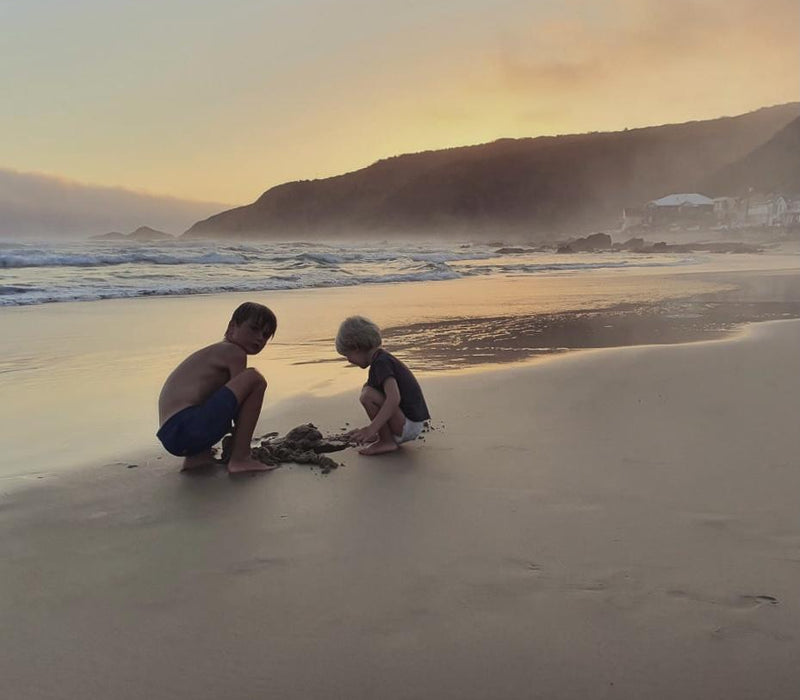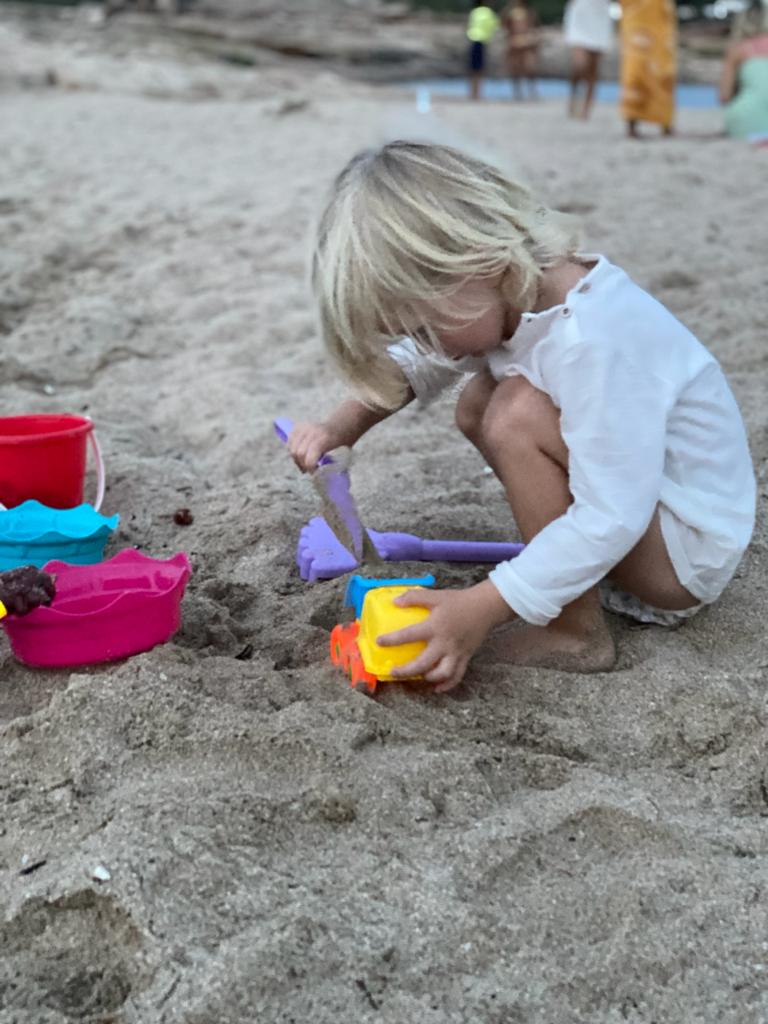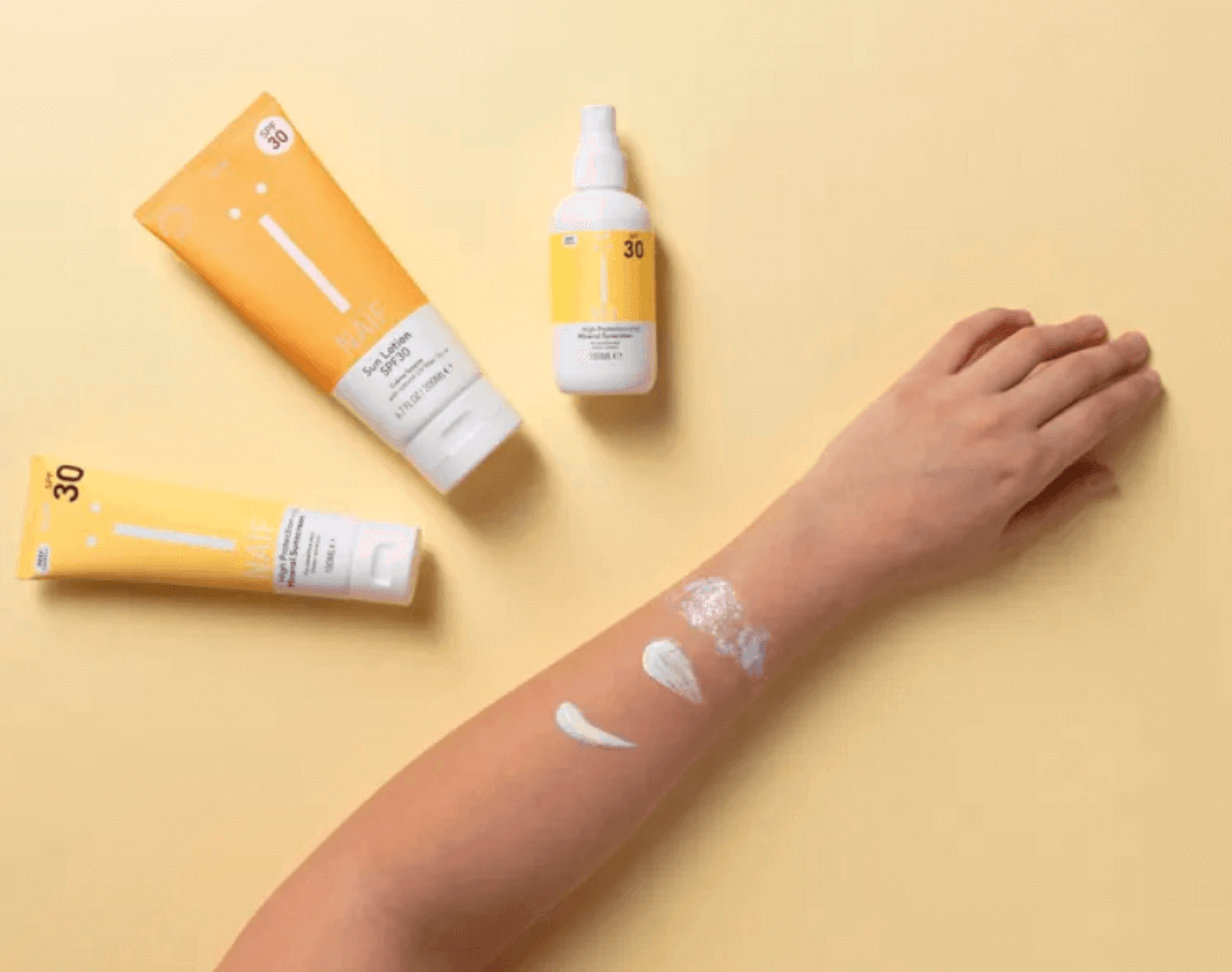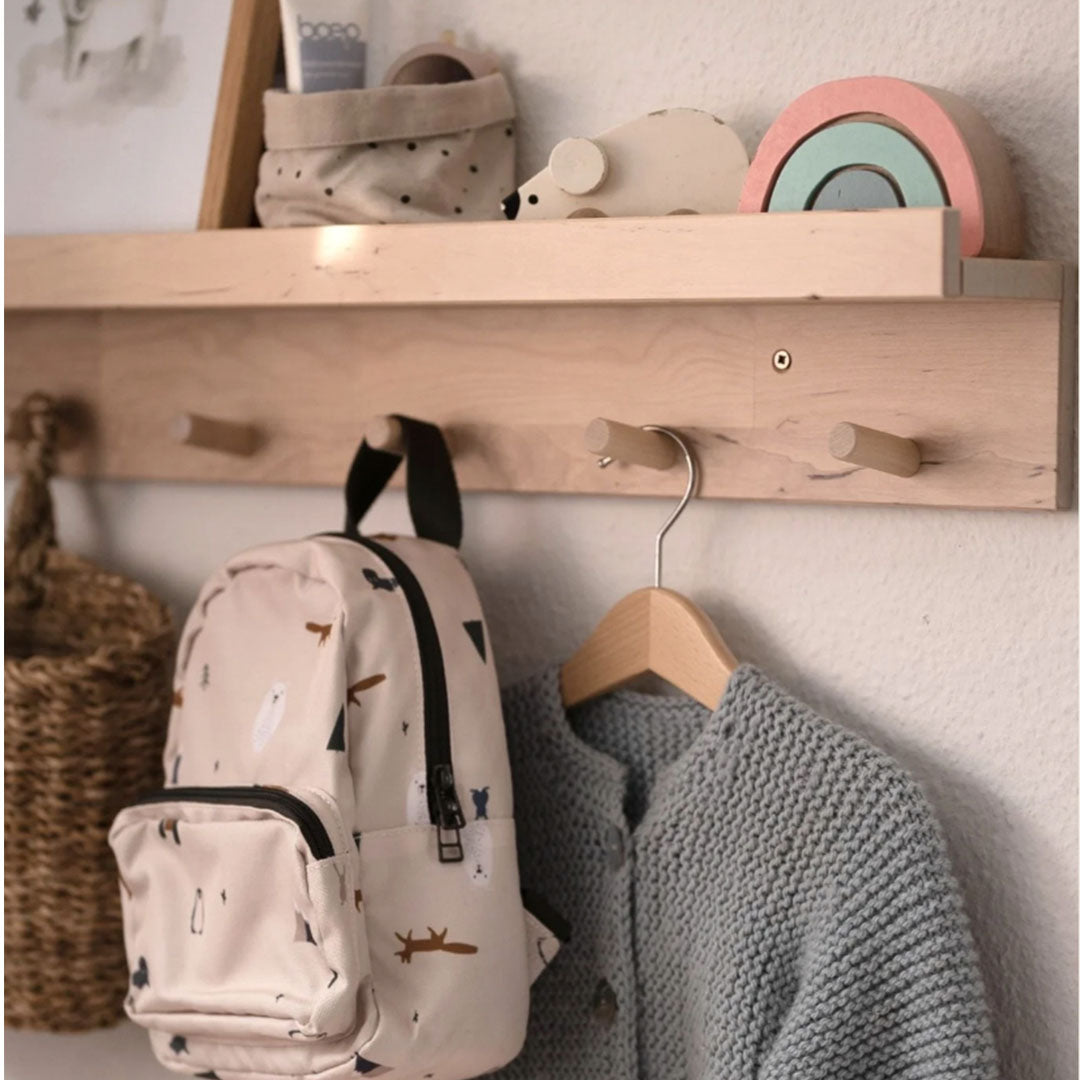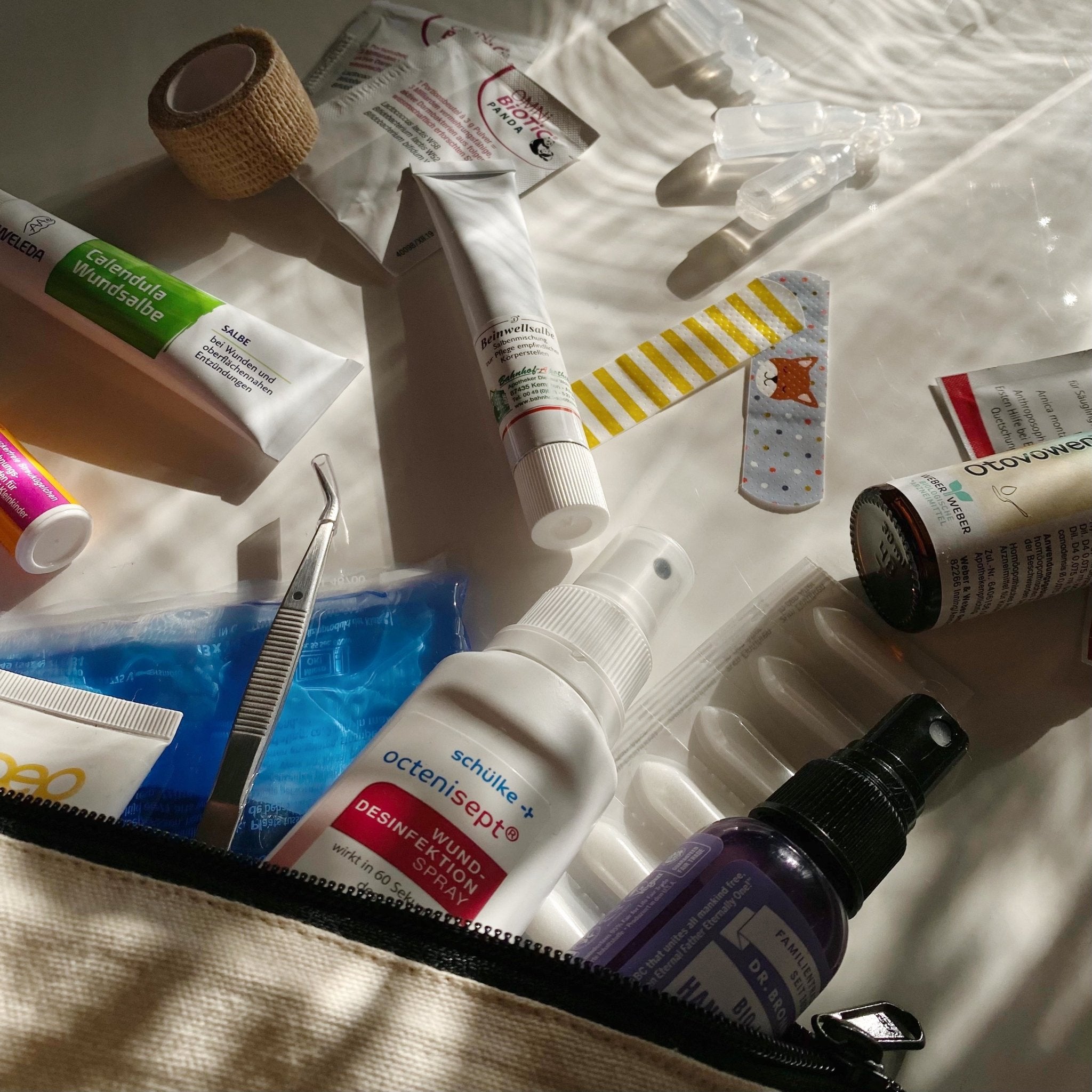Vacation at last! With a baby or small children, however, it can turn into a whole new challenge - and still be wonderful. Because yes: both can be the case at the same time.
Of course, just because a little one has a lot of not-so-little demands and turns your life upside down doesn't mean that all travel has to be a thing of the past. But even the most experienced jetsetter will notice: The first vacation with a baby is completely different than before, and bigger kids also give the vacation a completely different dynamic. It's good to have a few tips at hand to make traveling more relaxed for everyone.
Because that's what it's all about, isn't it? Even the trickiest situations are easier to resolve when you're relaxed, from spilled diapers in the middle of a landing approach to lost luggage or the unpleasant looks of fellow travelers. Perhaps the most important thing is to adjust your expectations in advance. Yes, vacationing with a baby or small children is not the same as vacationing in the past. But that doesn't mean that from now on, apart from family hotels with mini disco and all-inclusive, nothing else is possible.
In the meantime, there are really great family hotels that are tailored to parents and children - so that everyone can really feel at home! And especially on your first vacation with a baby, you will find out what is right for you - whether a hotel with all-round care or a vacation apartment that simply offers more flexibility thanks to its own kitchen, washing machine and Co.
Smaller babies in particular sleep a lot and (usually) adapt well - nevertheless, a vacation with a baby is nothing other than everyday life, just at the seaside or in the mountains. Still nice, but keeping the existing routines and structures as far as possible can save mom and dad some nerves, and help the little ones to process the new impressions better.
And of course, it makes a huge difference whether you're traveling with a four-month-old baby or a two-year-old toddler - ultimately, you know your child best and know exactly what they, and you, need right now. What this is definitely not? Extra stress. That's why we've put together the best tips for traveling with a baby and toddler - personally tested and approved by us!
Generally speaking:
Sure, you have already taken care of your children's passports, but with covid, it’s worth checking any travel regulations shortly before departure because these can change quickly. Check the foreign office website and any news sites from the countries themselves to make sure you have all the necessary documents. By doing this research you can also make the decision for yourself what works the best for you and your family. Vaccine proof should always travel with you.
For older children who already have to wear masks, it is also good to have FFP2 masks with you, since these must be worn in part and are often expensive in the country of travel, and might be worse quality.
Especially when travelling, the degree between sweating and freezing can be very small, because we regularly go from warm temperatures directly to the air conditioning system and back again. Nothing is worse than a well-planned trip with a baby who ends up being too warm or too cold. Our tip: wool silk basics with a cardigan or a Schlüttli , which can be put on or taken off at any time. This supports temperature regulation and prevents the little ones from sweating too much.
Clothing made of wool and silk also absorbs moisture better and dries faster than cotton - all the more useful when travelling, as you can't change your little ones all the time.
For small children from size 98/104 there are also great wool & silk undershirts that are great for travelling. On top of that, long-sleeved is always good for travel, and light shirts are also a good idea, as they protect against air conditioning, wind, and UV rays, but are still light enough when the temperature rises.
Because not only on the trip itself, but also on site (at night or due to air conditioning) it can get cool and every baby needs a cozy blanket even on vacation. Here, too, wool helps regulate the temperature, and having something from home with you amidst all the strange sights and smells is incredibly comforting.
Doing laundry with a baby and especially small children is often an Olympic discipline at home, but on vacation it can quickly get out of hand. In order to keep an overview and have some order in the packing chaos, it is worthwhile to use packing bags and organizers that separate the different categories and keep everything in place (and easy to find) even if the accommodation changes or there is no cupboard on site. By the way, this also applies to the handbag and hand luggage! To suit your taste, there's a huge selection of packing cubes and tidy bags online, or just see what would be good to use bags you already have at home!
Accidents can also happen on vacation - it's good if a well thought-out first- aid kit is always to hand.
Checking what the local emergency numbers are and how to get to the nearest hospital right at the beginning of a trip can take some of the stress off if the worst comes to the worst.
When traveling by plane, it is worth keeping an eye on the liquid restrictions and bringing the products with you in a plastic bag with other liquids if you have them in your hand luggage. The check-in staff often knows no exceptions, even with babies!
The general rule for trips is: take more than enough of everything with you in case something goes wrong on the way.
Everything that your child needs for the journey itself should be with you, and don't be afraid to take extra nappies, milk powder and a change of clothes, especially in hand luggage, so that you are prepared for all eventualities.
At the same time, it is also smart to find out in advance about the availability and prices in the destination country. There is often a good range of everything you need, sometimes even cheaper - and nobody really wants to lug around a suitcase totally full of diapers, right?
The same goes for complementary feeding: even if the food is different at home, your child won't starve. On the contrary, different tastes can not only be really exciting, but also great for their development.
As a general rule, if you're about to start complementary feeding just in time for your vacation, it's better to wait until you're back. Breastfeeding or bottle-feeding on the road is often much easier and a few weeks will make absolutely no difference to your baby.
This is almost self-explanatory, but it's just smart to plan around your nap and spend it in the (rental) car to make the most of it. While that might mean shifting your own meals a bit, that's probably nothing brand new to you, is it? Our tip for older children: Neck holder for the headrest of the child seat so that the head does not buckle when the kids fall asleep.
Tip: There are some pharmacies that rent electric breast pumps, so you don't have to buy them separately if you want to stick to occasional pumping. It's worth finding out which pharmacy in your area might be the right choice for you while you're pregnant!
Audio books, books to look at yourself, a magic board and sometimes the iPad: a lot helps a lot, and especially things that haven't been used for a long time can become really exciting again on long journeys or a flight. For long journeys, you should also definitely consider getting your (bigger) children's own headphones, which also help with volume control.
The best activity on long journeys? Meal. Dried fruit, fresh fruit, crackers and co - no matter what the little explorers like to snack on, there should always be enough of it! It is therefore always a good idea to take at least one snack can with you. This is also very practical at the holiday destination in order to be able to pack food for the day right at breakfast, and is significantly more sustainable than always buying everything on the go. It is always advisable for small children to have their own drinking bottles.
It may sound like an unnecessary amount of luggage at first, but when you go to the beach, your own swimming aids and beach toys should be an integral part of your travel equipment. Buying new on site and then throwing them away at the end of the holiday is not only impractical for sustainability reasons, but often you get what you pay for. The tested swimming aids, where you can really trust in safety, are the better choice. Diving goggles and inflatables can also be smart to bring unless there are rental options at the hotel.
Even if you're gripped by wanderlust, it doesn't have to be a 12-hour flight when the baby is just a few months old. There are also wonderful destinations by train (or car, if your baby doesn't cry every time you drive). Traveling thoughtfully is great for both your baby and the environment, and traveling by train with a baby is often more relaxed anyway – at least we think so! It's also great to book your own compartment on the train and plan intermediate destinations so that you never have too long a journey at once.
For the right thing to do when traveling by air, read this article.
Accidents can also happen on vacation - it's good if a well thought-out first- aid kit is always to hand. Checking what the local emergency numbers are and how to get to the nearest hospital right at the beginning of a trip can take some of the stress off if the worst comes to the worst. When traveling by plane, it is worth keeping an eye on the liquid restrictions and bringing the products with you in a plastic bag with other liquids if you have them in your hand luggage. The check-in staff often knows no exceptions, even with babies!
Wissen
Sonnencreme für empfindliche Baby und Kinderhaut
Sommer, Sonne, .... eincremen. Wir sind für euch mal in die Welt der Sonnencremes eingetaucht und haben die wichtigsten Fakten beim Sonnencreme Kauf einmal aufgelistet.
Und natürlich gibt es auch eine persönliche Produktempfehlung mit Code für euch. Schaut in unserem Artikel rein und lest, was wichtig ist.
